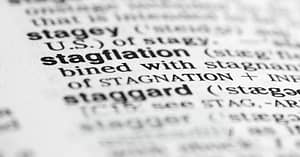As a healthcare professional, you are responsible for safeguarding your patient’s protected health information. The HIPAA Privacy Rule gives patients the right to control who can access their medical records and other personal health information. You can be subject to fines and penalties if you fail to comply with the HIPAA Privacy Rule. The Privacy Rule applies to all forms of PHI, whether electronic, written, or oral. PHI includes a patient’s name, address, birth date, phone number, social security number, medical history, test results, and insurance information.
The Privacy Rule covers all of this information, even if it is de-identified. www.defensorum.com can provide you with more information on HIPAA violations in the workplace and how to avoid them professionally. When it comes to safeguarding PHI, there are a few key things you should keep in mind. First and foremost, always protect patients’ Personally Identifiable Information (PII) from unauthorized access. To do this, keep all PHI secure on your devices and make sure to encrypt any sensitive information.
Here are the top 5 HIPAA violations that can result in CMPs:
1) Failure to conduct a risk assessment
2) Lack of written policies and procedures
3) Lack of physical safeguards
4) Lack of technical safeguards
5) Failure to train employees on HIPAA compliance
1) Failure to Conduct a Risk Assessment
One of the most common HIPAA violations that can result in a CMP is failure to conduct a risk assessment. A risk assessment is required by the HIPAA Security Rule and must be conducted on a regular basis. It is used to identify and address potential risks to PHI’s confidentiality, integrity, and availability.
Without a risk assessment, covered entities cannot properly safeguard PHI from threats and vulnerabilities. This can lead to data breaches and other serious consequences. Covered entities should consult with their legal counsel to ensure that their risk assessments are up-to-date and compliant with HIPAA.
2) Lack of Written Policies and Procedures
Another common HIPAA violation that can result in a CMP is a lack of written policies and procedures. The HIPAA Security Rule requires covered entities to have written policies and procedures in place to protect PHI from unauthorized access, use, or disclosure. These policies and procedures must be reviewed and updated on a regular basis.
Without written policies and procedures, covered entities cannot ensure that their employees are properly trained on how to safeguard PHI. This can lead to data breaches and other serious consequences. Covered entities should consult with their legal counsel to ensure that their policies and procedures are up-to-date and compliant with HIPAA. The policies and procedures must be approved by a member of senior management, reviewed and updated as needed, and made available to all members of the workforce.
3) Lack Of Physical Safeguards
One of the most common HIPAA violations that can result in a CMP is a lack of physical safeguards. The HIPAA Security Rule requires covered entities to have physical safeguards in place to protect PHI from unauthorized access, use, or disclosure. These safeguards must be reviewed and updated on a regular basis.
Without physical safeguards, covered entities cannot ensure that their facilities are secure. This can lead to data breaches and other serious consequences. Covered entities should consult with their legal counsel to ensure that their physical safeguards are up-to-date and compliant with HIPAA. Physical safeguards are in place to protect PHI stored in paper files from unauthorized access, theft, or damage. Covered entities must take reasonable measures to prevent unauthorized individuals from gaining physical access to areas where PHI is kept (e.g., locked doors or filing cabinets).
4) Lack Of Technical Safeguards
A lack of technical safeguards is one of the most common HIPAA violations that can result in a CMP. The HIPAA Security Rule requires covered entities to have technical safeguards in place to protect PHI from unauthorized access, use, or disclosure. These safeguards must be reviewed and updated on a regular basis. Technical safeguards are in place to protect electronic PHI from unauthorized access, theft, or damage. Covered entities must take reasonable measures to prevent unauthorized individuals from accessing PHI through electronic means (e.g., password protection or encryption).
Without technical safeguards, covered entities cannot ensure that their systems are secure. This can lead to data breaches and other serious consequences. Covered entities should consult with their legal counsel to ensure that their technical safeguards are up-to-date and compliant with HIPAA. Technical safeguards are in place to protect PHI stored electronically from unauthorized access, theft, or damage. Covered entities must take reasonable measures to prevent unauthorized individuals from gaining access to systems where PHI is kept (e.g., password protection, firewalls).
5) Failure To Train Employees On HIPAA Compliance
One of the most common HIPAA violations that can result in a CMP is a failure to train employees on HIPAA compliance. The HIPAA Security Rule requires covered entities to provide employees with training on the proper handling of PHI. This training must be reviewed and updated on a regular basis. Covered entities should consult with their legal counsel to ensure that their training programs are up-to-date and compliant with HIPAA. Failure to train employees on HIPAA compliance can lead to data breaches and other serious consequences. Covered entities must take reasonable measures to ensure that all employees are properly trained on the proper handling of PHI.
All workforce members must be trained on the policies and procedures regarding compliance with the HIPAA Privacy Rule before they are permitted access to PHI. Training must be provided on an annual basis and whenever there are changes to the policies or procedures. Documentation demonstrating that workforce members have been trained on the policies and procedures must be maintained.
Final Thoughts:
By understanding which actions can result in CMPs, you can take steps to avoid them at your workplace. Conducting a risk assessment; maintaining written policies and procedures; protecting physical access to PHI; protecting electronic access to PHI, and training workforce members on compliance with the HIPAA privacy rule. Following these tips will help ensure you stay compliant with HIPAA requirements and avoid penalties.








